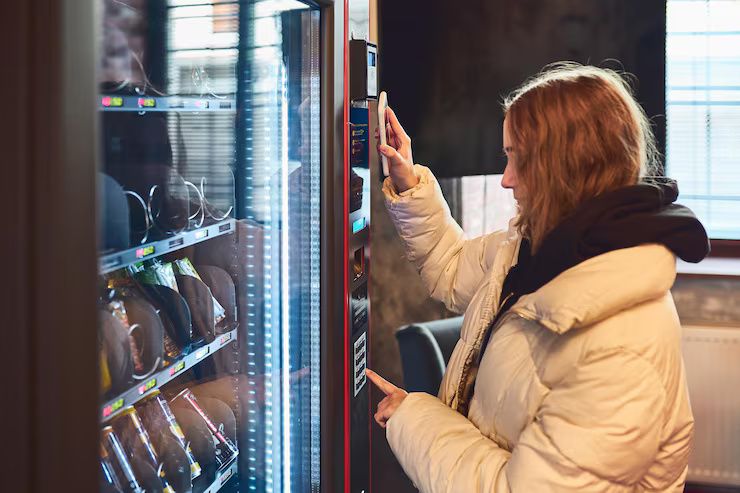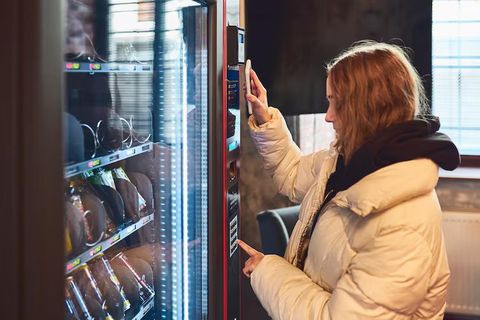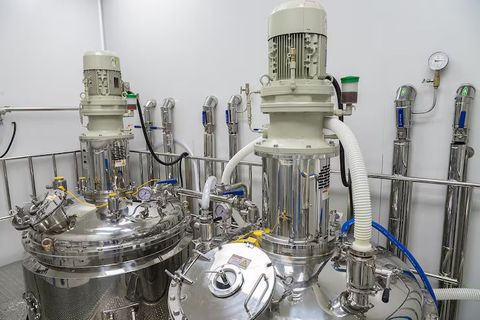Discover How Smart Vending Machines Use AI: Insights and Practical Tips for Modern Spaces
Artificial Intelligence (AI) is quietly reshaping everyday experiences, and vending machines are no exception. Modern AI-powered vending machines combine automation, data analytics, and machine learning to create smarter, faster, and more personalized experiences for users. Found in offices, schools, malls, airports, and public transport hubs, these machines represent the next stage of convenience retailing one that’s efficient, sustainable, and adaptive to human behavior.
Smart vending machines matter because they respond directly to how people live and shop today. In a world where speed and convenience dominate decision-making, these machines reduce waiting times, enhance user satisfaction, and help businesses optimize operations.
Why It Matters:
-
Consumer Experience: AI vending systems can analyze purchase patterns and recommend products based on user behavior or local demand.
-
Operational Efficiency: Businesses can track stock levels in real time, reducing waste and improving inventory planning.
-
Accessibility: Smart interfaces, voice control, and cashless payment systems make vending machines more inclusive for diverse users.
-
Sustainability: Many machines now include energy-efficient cooling systems and biodegradable packaging options.
Who It Affects:
-
Facility Managers: In offices, AI vending machines support employee wellness by providing quick access to healthy snacks or beverages.
-
Educational Institutions: Schools and universities use them for contactless transactions, promoting hygiene and safety.
-
Retailers and Mall Operators: Smart vending helps extend retail presence without increasing staffing or space costs.
Problems It Solves:
Traditional vending systems often face issues like product spoilage, theft, machine downtime, and stock mismanagement. AI helps overcome these with predictive analytics, automated restocking alerts, and remote diagnostics that minimize maintenance disruptions.
Recent Updates and Global Trends
The global smart vending machine market has grown steadily, driven by advances in AI and IoT technologies. According to a 2024 report by MarketsandMarkets, the global AI vending market is expected to surpass USD 20 billion by 2027, growing at a CAGR of around 12%.
Notable Developments in 2024–2025:
-
Facial Recognition and Personalization: In early 2025, several Japanese and South Korean airports introduced facial-recognition-enabled vending machines that personalize product suggestions.
-
Sustainability Features: In Europe and North America, many brands are integrating AI algorithms to track and reduce carbon footprints through energy-efficient operations.
-
Health-Focused Options: Post-pandemic trends show a rise in AI vending machines dispensing health-related products like sanitizers, protein snacks, and beverages with nutritional insights.
-
Data-Driven Insights: AI models now use cloud-based analytics to identify buying patterns by time, location, and demographics, helping operators optimize machine placement.
Emerging Markets:
India, Southeast Asia, and parts of Africa are adopting AI vending solutions in public spaces, schools, and IT parks. Government digital initiatives and improved payment infrastructure are making this transition faster.
Regulatory and Policy Landscape
AI vending machines are influenced by several laws and standards, particularly related to data privacy, safety, and digital payments. Regulations vary by country, but certain global themes are consistent:
-
Data Protection and Privacy:
-
Under the EU’s General Data Protection Regulation (GDPR) and similar frameworks like India’s Digital Personal Data Protection Act (2023), vending operators must ensure that facial recognition, transaction logs, and AI algorithms protect user privacy.
-
-
Food and Safety Compliance:
-
Machines dispensing food or beverages must follow national food safety laws such as FDA guidelines (U.S.) or FSSAI regulations (India) for labeling, hygiene, and expiry tracking.
-
-
Payment Regulations:
-
Cashless vending machines must comply with secure payment protocols like PCI DSS to protect card data.
-
-
AI Ethics and Transparency:
-
Governments worldwide are working toward AI governance frameworks ensuring that vending algorithms remain transparent, fair, and non-discriminatory.
-
These policies are shaping how AI vending machines collect, store, and use customer data while maintaining compliance with evolving legal standards.
Tools, Platforms, and Resources
AI vending technology relies on a blend of hardware and software platforms. Here are some key resources and tools that support the smart vending ecosystem:
AI & IoT Platforms:
-
Microsoft Azure IoT Hub – Enables real-time monitoring and predictive maintenance for connected vending systems.
-
Google Cloud AI Platform – Helps in analyzing consumer data, enabling personalized recommendations.
-
IBM Watson IoT – Offers machine learning and automation capabilities for vending fleet management.
Vending Management Software:
-
VendSoft – A vending management solution offering route optimization and inventory tracking.
-
Cantaloupe Systems – Provides end-to-end telemetry, cashless payments, and data analytics.
-
Parlevel Systems – Integrates product performance, machine health, and cash tracking in one dashboard.
Payment & Integration Tools:
-
PayRange and Apple Pay – Enable mobile wallet integration.
-
Nayax – A payment and telemetry platform for contactless vending operations.
Useful Websites & Industry Resources:
| Resource | Description |
|---|---|
| Vending Times | News and insights on vending industry trends and innovations |
| AVS Forum (Automated Vending Systems) | Discussion hub for vending professionals and AI tech enthusiasts |
| IEEE AI Standards Hub | Updates on AI regulation, data standards, and ethical guidelines |
These tools and platforms help vending operators adopt AI effectively while maintaining transparency, compliance, and reliability.
Frequently Asked Questions
1. What is an AI-powered vending machine?
An AI-powered vending machine uses machine learning, sensors, and connected systems to automate product selection, restocking, and maintenance. It can personalize offerings and optimize performance through real-time data analysis.
2. How does AI improve vending machine efficiency?
AI improves efficiency by predicting demand, reducing stockouts, managing energy consumption, and alerting operators before issues occur. This reduces downtime and improves profitability for businesses.
3. Are AI vending machines secure for cashless payments?
Yes. Most modern vending systems support encrypted payment gateways like NFC, QR, or mobile wallets that comply with PCI DSS standards, ensuring transaction security.
4. What challenges do AI vending systems face?
Challenges include high installation costs, data privacy concerns, and the need for reliable internet connectivity. However, ongoing innovations and policy support are addressing these barriers.
5. Where can AI vending machines be used effectively?
They are ideal for corporate offices, schools, hospitals, airports, metro stations, and retail malls essentially, anywhere that benefits from 24/7 automated product access.
Conclusion
AI-powered vending machines illustrate how technology can make everyday experiences more intuitive and efficient. From offices to public spaces, these intelligent systems bridge the gap between convenience and innovation. They enhance user satisfaction, optimize resource use, and reduce operational waste all while aligning with emerging privacy and sustainability standards.
As governments introduce stronger AI and digital payment regulations, and as IoT connectivity improves globally, the adoption of smart vending machines will continue to expand. The next few years will likely bring deeper integration with health monitoring, personalized nutrition data, and eco-friendly operations proving that the humble vending machine has truly evolved into a smart companion for modern life.







